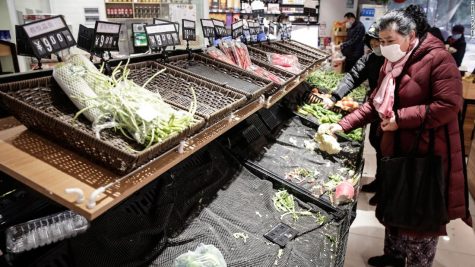Reduction in meat-eating deemed “essential” to avoid climate breakdown
The surprising link between meat consumption and global warming
Some Americans are cutting back on red meat, and health concerns seem to be the biggest reason they’re doing it, a survey found.
According to the most comprehensive analysis yet of the food system’s impact on the environment, enormous reductions in meat- eating are necessary to combat the climate breakdown. The Guardian stated that “in western countries, beef consumption needs to fall by 90% and be replaced by five times more beans and pulses.” While these numbers are huge, not many people actually understand why this meat-eating crisis is so huge.
Meat production already causes great damage to the environment, through greenhouse gases from livestock, deforestation, water shortages, and vast ocean dead zones due to agricultural pollution. By 2050, the world’s population will rise by 2.3 billion, and without action, the damage caused to the environment due to meat consumption will also rise. Marco Springmann, the leader of the research team at the University of Oxford, fears that this trajectory will smash critical environment limits: “ we are really risking the sustainability of the whole system. If we are interested in people being able to farm and eat, then we better not do that.” Feeding the growing population is possible, but only if everyone changes what they eat, and the way they eat it.
The researchers at the University of Oxford found that a global shift to a “flexitarian” diet would help combat the global warming problem. This diet means that the average person would need to “eat less than 75% beef, 90% less pork, and half the number of eggs.” These foods would be substituted for beans, pulses (seeds in the legume family, and nuts. By substituting these foods, emissions from livestock and better management of manure would. Some places in the world have already implemented different diet and farming options like in the Netherlands and Israel, and in cities, young people have made cuts to meat consumption.
According to The Independent, if no changes to food production are made, the impacts of this industry on the environment will rise by up to 90 % by 2050, meaning the planet will no longer be a “safe operating space for humanity”. So what can you do to help reverse this projection? Simply eat less meat. If the demand for meat products lowers, so will the negative impacts on the environment. Try to eat meat with your meals, 3 times a week, or less, and substitute meats for other types of protein, like legumes or tofu.








